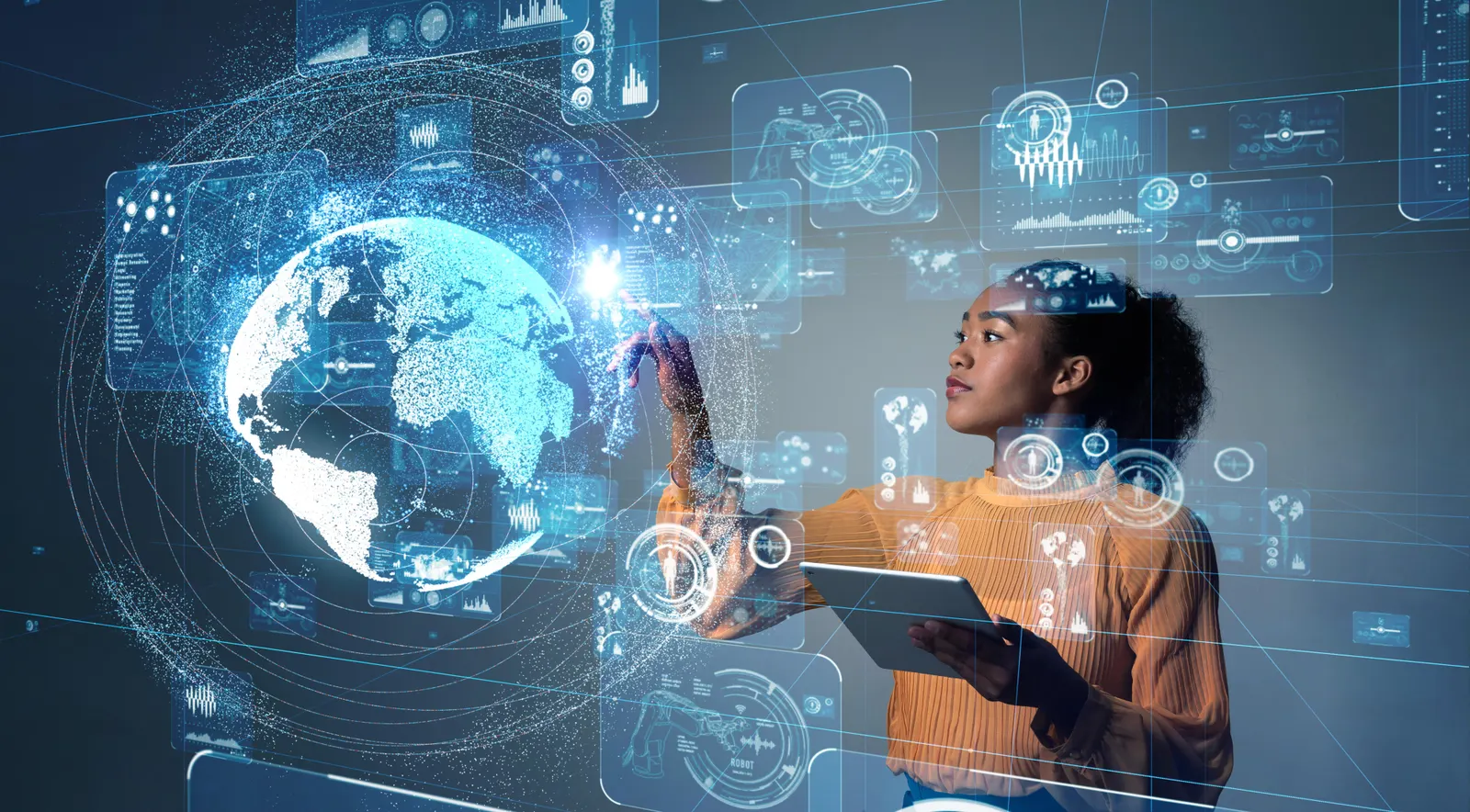As we stand on the cusp of 2025, the technological landscape is poised for transformative changes that will redefine industries and daily life. Emerging innovations are set to enhance connectivity, revolutionize artificial intelligence, and promote sustainability. Here’s a comprehensive look at the key technology trends anticipated to shape 2025.
Agentic AI: Autonomous Decision-Making
Artificial Intelligence (AI) is evolving beyond mere data processing to become more autonomous, giving rise to Agentic AI. These AI systems are capable of making independent decisions, executing tasks without human intervention, and adapting to new information in real-time. This progression is expected to enhance productivity across various sectors, from automating complex business processes to managing personalized user experiences.
5G-Advanced and the Dawn of 6G
The evolution of connectivity continues with the development of 5G-Advanced (also known as 5.5G), serving as a bridge to future 6G networks. 5G-Advanced focuses on performance optimization, enhanced spectral and energy efficiency, and expanded functionality to support advanced applications like extended reality (XR) and ultra-low latency services. Commercial deployment of 5G-Advanced is anticipated by the end of 2025, setting the stage for the subsequent rollout of 6G technologies.
Quantum Computing: A New Computational Paradigm
Quantum computing is set to revolutionize industries by solving complex problems beyond the capabilities of classical computers. In 2025, significant advancements in quantum hardware and algorithms are expected, enabling breakthroughs in cryptography, optimization, and material science. Businesses are preparing for a quantum future by exploring post-quantum cryptography to secure data against potential quantum threats.
Spatial Computing: Merging Physical and Digital Realities
Spatial computing integrates physical and digital environments, enabling seamless interaction between humans and machines. This technology encompasses augmented reality (AR), virtual reality (VR), and mixed reality (MR), facilitating applications in training, design, and remote collaboration. As spatial computing matures, it is expected to transform sectors such as healthcare, education, and entertainment by providing immersive and interactive experiences.
Sustainable Technology: Green Computing and Energy Efficiency
With growing environmental concerns, there is an increasing emphasis on sustainable technology. Advancements in energy-efficient computing, renewable energy integration, and eco-friendly manufacturing processes are becoming priorities. Technologies like AI are being leveraged to optimize energy consumption, and businesses are investing in green data centers to reduce their carbon footprint.
Autonomous Agents: The Next Step in AI Evolution
The development of autonomous agents—AI systems capable of performing tasks without human intervention—is gaining momentum. These agents can manage activities such as scheduling, purchasing, and data analysis independently. The progression towards autonomous agents is expected to enhance efficiency and open new avenues for AI applications in various industries.
Blockchain and Web3: Decentralizing the Internet
The shift towards a decentralized internet, known as Web3, is being facilitated by blockchain technology. Web3 aims to give users greater control over their data and online interactions, promoting transparency and security. Applications of blockchain in 2025 are expected to expand beyond cryptocurrencies to include decentralized finance (DeFi), supply chain management, and digital identity verification.
Biotechnology and Health Tech: Personalized Medicine
Advancements in biotechnology are paving the way for personalized medicine, where treatments and healthcare strategies are tailored to individual genetic profiles. In 2025, progress in gene editing technologies, such as CRISPR, and the integration of AI in diagnostics are anticipated, leading to more effective and customized healthcare solutions.
Cybersecurity: Safeguarding the Digital Realm
As technology becomes more integrated into daily life, the importance of cybersecurity continues to grow. Emerging threats require innovative security measures, including AI-driven threat detection, post-quantum cryptography, and comprehensive data protection strategies. Businesses and individuals alike must prioritize cybersecurity to protect sensitive information and maintain trust in digital systems.
Conclusion
The technological advancements anticipated in 2025 promise to transform various aspects of society, from how we interact with machines to how we address environmental challenges. Embracing these trends requires a commitment to innovation, ethical considerations, and a focus on sustainability to ensure that technology serves the greater good.

